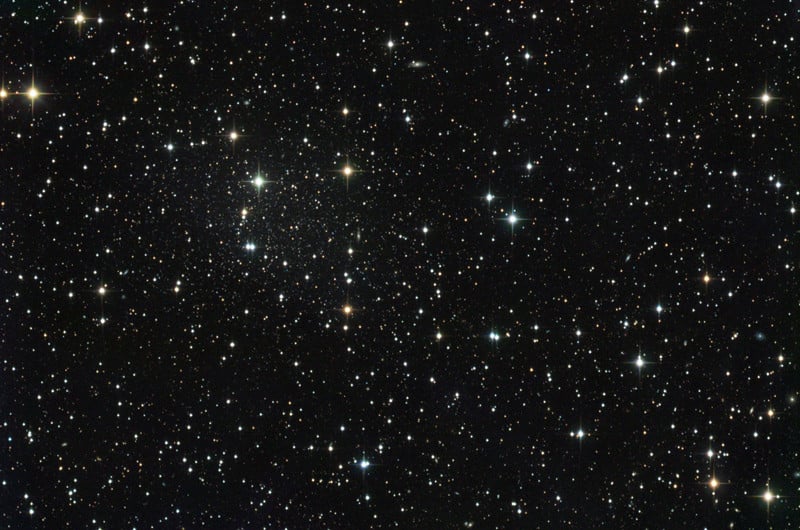[/caption] A group of physicists say that the distribution of satellite galaxies that orbit the Milky Way, as well as the apparent dark matter within them, presents a direct challenge to Newton's theory of gravitation, as the galaxies are not where they should be. "There is something odd about their distribution," said Professor Pavel Kroupa from the University of Bonn in Germany. "They should be uniformly arranged around the Milky Way, but this is not what we found." Standard cosmological models predict the presence of hundreds of these companions around most of the larger galaxies, but up to now only 30 have been observed around the Milky Way. The physicists say that Newton's theory of gravitation should be modified.
The astronomers from Germany, Austria and Australia looked at the small dwarf galaxies that orbit the Milky Way and discovered that the eleven brightest of the dwarf galaxies lie more or less in the same plane - in a kind of disk shape - and that they revolve in the same direction around the Milky Way (in the same way as planets in the Solar System revolve around the Sun). Some of these contain only a few thousand stars and so are relatively faint and difficult to find.
Professor Kroupa and the other physicists believe that this can only be explained if today's satellite galaxies were created by ancient collisions between young galaxies. Team member Dr. Manuel Metz said, "Fragments from early collisions can form the revolving dwarf galaxies we see today, but this introduces a paradox. Calculations suggest that the dwarf satellites cannot contain any dark matter if they were created in this way. But this directly contradicts other evidence. Unless the dark matter is present, the stars in the galaxies are moving around much faster than predicted by Newton's standard theory of gravitation."
Metz added, "The only solution is to reject Newton's theory. If we live in a Universe where a modified law of gravitation applies, then our observations would be explainable without dark matter."
With this evidence, the team share the convictions of a number of groups around the world who believe that some of the fundamental principles of physics have been incorrectly understood. If their ideas are correct, it will not be the first time that Newton's theory of gravitation has been modified. In the 20th century it happened when Einstein introduced his Special and General Theories of Relativity and again when quantum mechanics was developed to explain physics on sub-atomic scales. The anomalies detected by Dr. Metz and Professor Kroupa and their collaborators imply that where weak accelerations predominate, a 'modified Newtonian dynamic' may have to be used. If the scientists are right then this has far-reaching consequences for our understanding of the Universe we live in.
The two studies will appear in papers in Monthly Notices of the Royal Astronomical Society and the Astrophysical Journal.
Source:
RAS
 Universe Today
Universe Today
